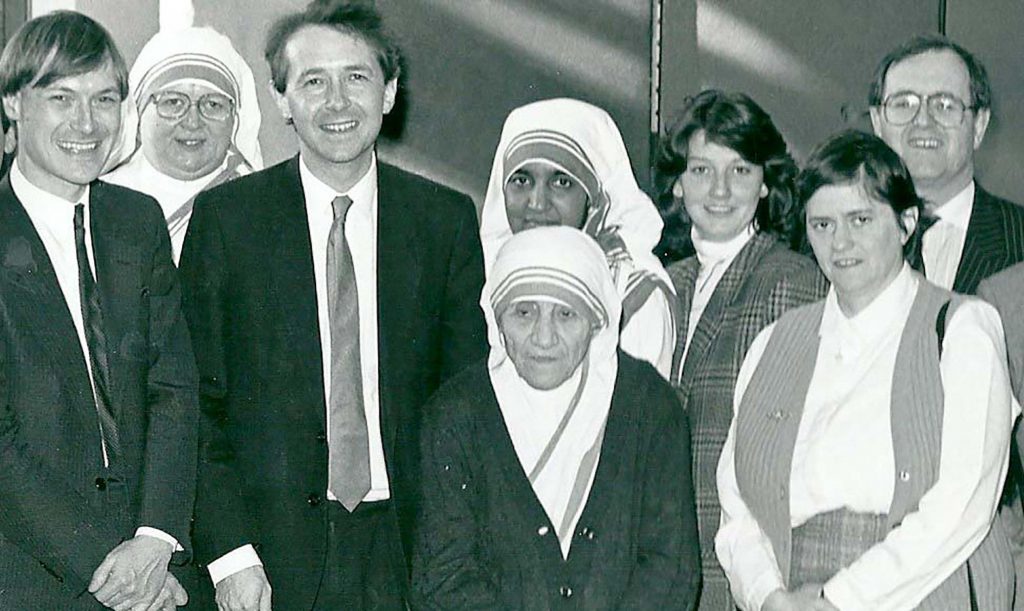LEICESTER, United Kingdom — When David Amess was murdered on Oct. 15, the English Catholic Church lost one of its most influential laypersons.
Amess wasn’t a priest, religious, or theologian: He was a politician, a Conservative Party member of Parliament (MP), yet he made his faith a guiding principle for his work.
Because he was a politician, some of his views and actions would be seen as controversial. He was strongly for Brexit — defying the Conservative Party leadership at the time — and opposed fox-hunting, which was supported by most of the members of his party, at least the rural ones.
Other controversial views were strongly tied to his faith: He was one of the most pro-life members of Parliament, although the issue is less prominent in England, where abortion is legal, but more restricted than in the United States.
He was first elected to Parliament in 1983, when anti-Catholicism was still fairly common in England, especially in the southeast, which he represented. The Irish Troubles and the 1982 Falklands War against Argentina did little to abate the prejudice. Despite this, Amess was never shy about his faith, and was especially keen on improving relations with the Vatican.
He established the All-Party Parliamentary Group on the Holy See, which brought together members of both Houses of Parliament from different parties to better understand the workings of the Vatican; he also led the resistance to a short-lived plan to downgrade the U.K.’s embassy to the Vatican.
In a statement, Cardinal Vincent Nichols said Amess “carried out his vocation as a Catholic in public life with generosity and integrity,” a sentiment echoed by the Archbishop of Canterbury, Justin Welby, at his memorial service on Oct. 18.
Welby mentioned Amess’ “robust fairness of spirit and charity of heart that won the admiration and affection of all sides, regardless of whether they agreed with him politically or not.”
“It was a charity of heart that came from his deep Catholic Christian faith, which was mentioned so often, by so many, in the Lords,” said the archbishop. (25 Anglican bishops, including the Archbishop of Canterbury, are members of the British House of Lords, the upper chamber of Parliament.)
One of the reasons a Catholic could do so well politically in England is that constituent relations are so important to the system.
The House of Commons has 650 members, and each MP represents just 98,000 people. As a comparison, the United States House of Representative has just 435 members, and each congressman represents more than 730,000 people.
Every MP holds regular “constituent surgeries,” where they meet with the general public on a one-to-one basis in different locations. These surgeries are effective, and legislation often stems from these meetings. For example, Amess was responsible for the Warm Homes and Energy Conservation Act, which he introduced after finding out a constituent had died in part due to a lack of heating in their house. Three years ago, he founded the All-Party Parliamentary Group on Endometriosis after speaking to a woman at a surgery who suffered from the condition.
It was at one of these surgeries that Amess was killed. A suspected Islamist terrorist, Ali Harbi Ali, stabbed the MP repeatedly as he was meeting with constituents at Belfairs Methodist Church in the town of Leigh-on-Sea.
The attack was probably unrelated to the MP’s Catholic faith. Although an official motive hasn’t been published as to why Amess was targeted, it has been suggested it has to do with his support of better relations with Qatar, which is supporting the current Somali government. Ali’s father was a former senior aide to Somalia’s prime minister, and critic of the role the Gulf state had in his homeland.
Amess is the second MP to be murdered at a surgery in the past five years. Labour Party MP Jo Cox was shot and stabbed in 2016 by 53-year-old Thomas Alexander Mair, a white supremacist.
With Amess’s murder, questions are being raised about the security of MP’s and whether holding constituent surgeries is safe in the 21st century.
In his statement, Cardinal Nichols said that MPs “are servants of the people, available to people in their need, especially in their constituencies.”
“This horrific attack, as David was undertaking his constituency surgery, is an attack on our democratic process and traditions,” the cardinal added.
So far, MPs have said the tradition of the constituent surgery is vital to their work and will continue, although the British government will now provide a security detail at the events.

